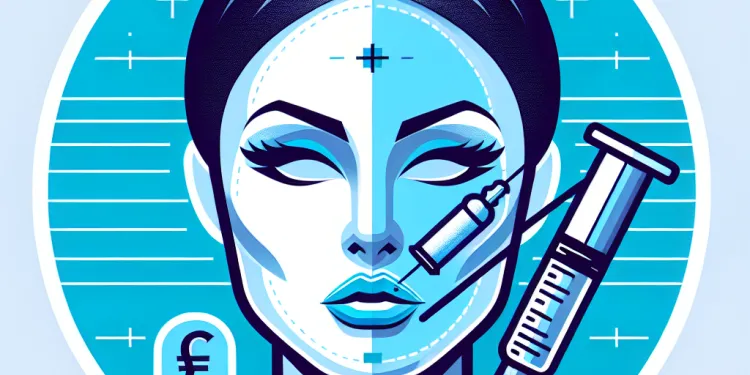
Find Help
More Items From Ergsy search
-
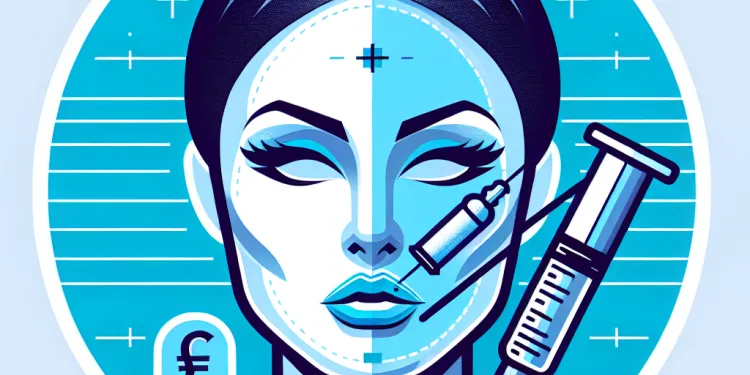
Does Botox injection hurt?
Relevance: 100%
-

What should I do if I experience side effects after a Botox injection?
Relevance: 78%
-
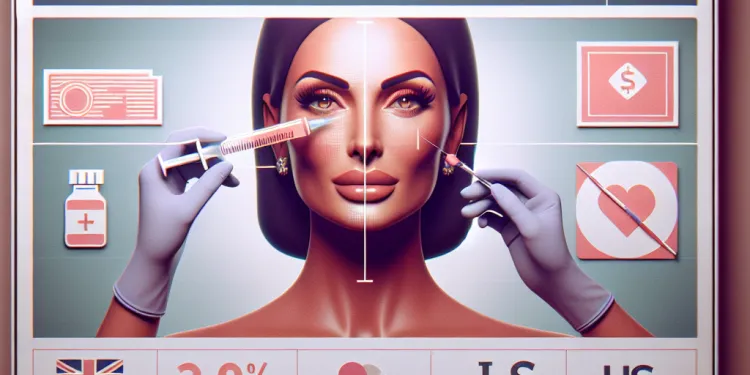
Does Botox hurt?
Relevance: 75%
-
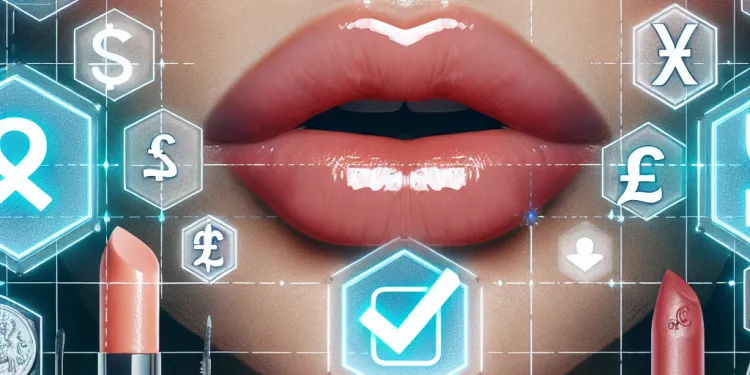
Is Botox safe?
Relevance: 68%
-

Is Botox safe?
Relevance: 66%
-
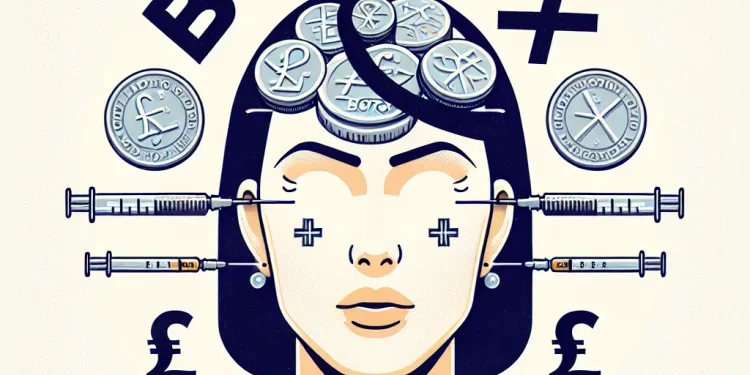
Can Botox be used for migraines?
Relevance: 66%
-

What are the side effects of Botox?
Relevance: 65%
-

What is Botox used for?
Relevance: 65%
-

Can Botox help with excessive sweating?
Relevance: 64%
-

What is Botox?
Relevance: 62%
-

Can Botox cause serious health issues?
Relevance: 61%
-

What are the common uses of Botox?
Relevance: 61%
-

Can I get Botulism from Botox Treatments?
Relevance: 60%
-

Evidence-Based Interventions: injections for non-specific low back pain without sciatica
Relevance: 60%
-
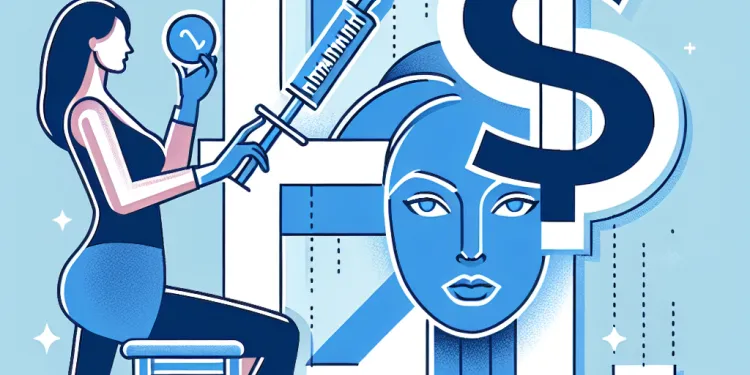
What are the side effects of Botox?
Relevance: 58%
-

Can Botox be used for treating conditions other than wrinkles?
Relevance: 58%
-

How does Botox work?
Relevance: 58%
-
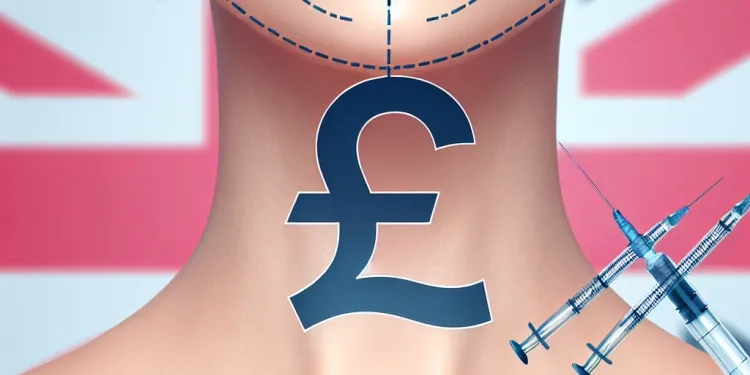
What areas can be treated with Botox?
Relevance: 57%
-
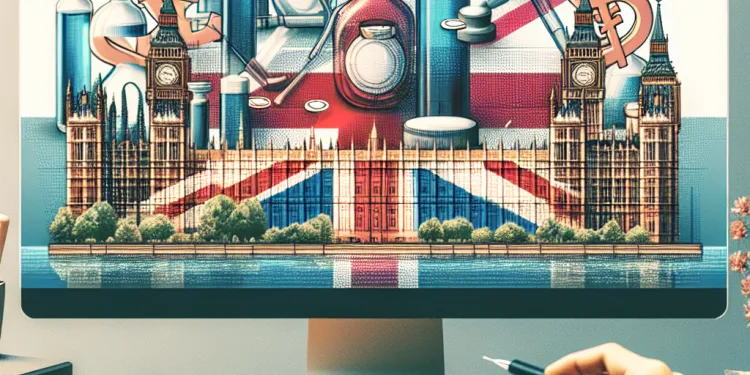
How does Botox work if it's related to botulism toxin?
Relevance: 57%
-
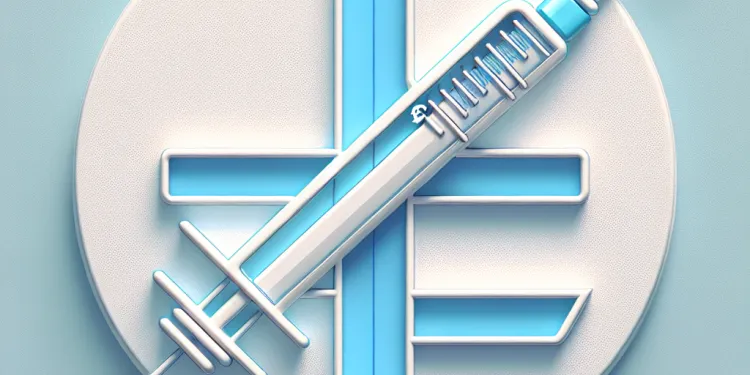
Who can administer Botox?
Relevance: 57%
-
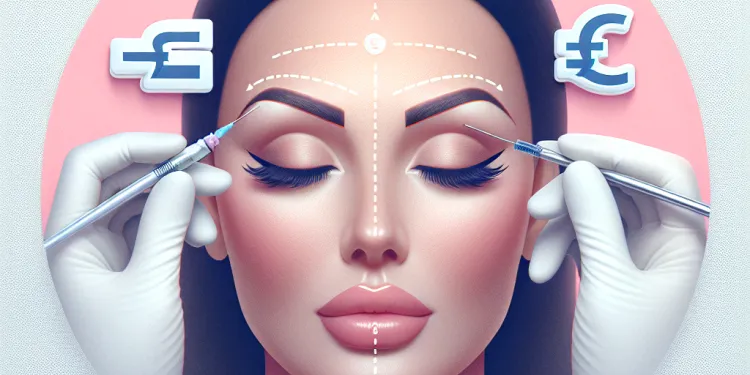
Can Botox lift my eyebrows?
Relevance: 57%
-

What is Botox made from?
Relevance: 56%
-
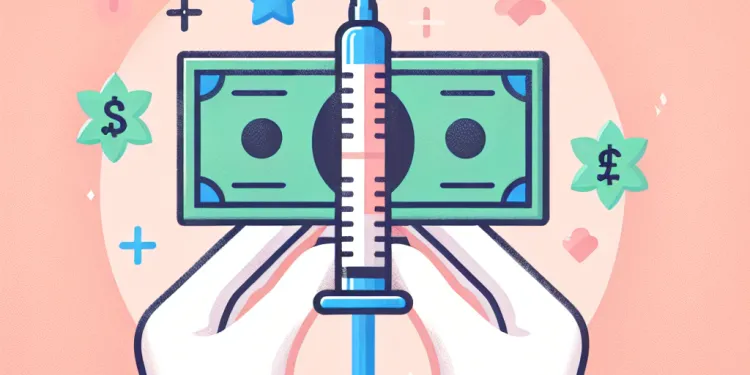
Can anyone get Botox treatments?
Relevance: 56%
-
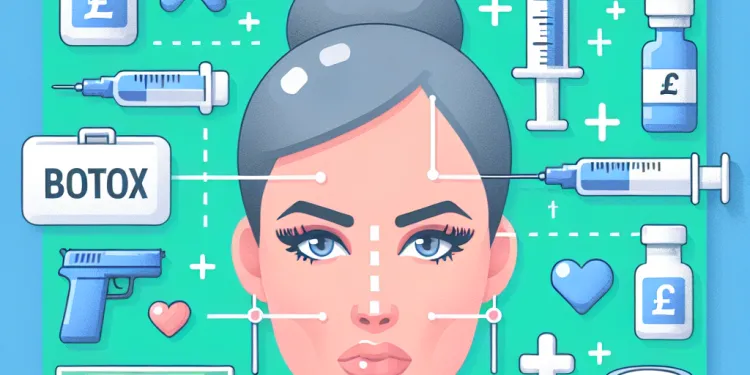
Is Botox vegan?
Relevance: 55%
-

Can I get Botox while pregnant?
Relevance: 54%
-

How long does Botox last?
Relevance: 52%
-

Are there any long-term effects of using Botox?
Relevance: 52%
-
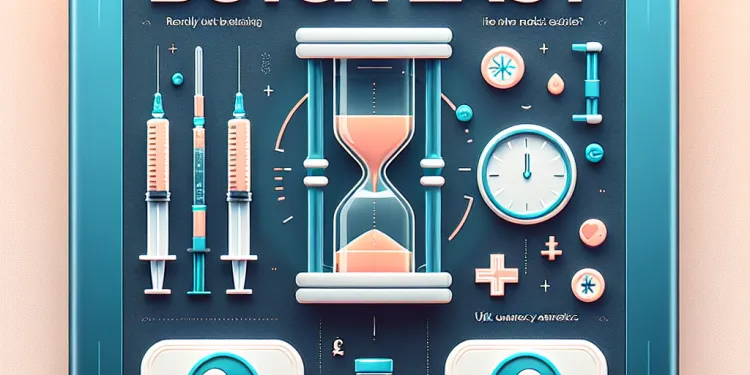
How long do the effects of Botox last?
Relevance: 51%
-

How soon will I see results from Botox?
Relevance: 50%
-

How to inject insulin
Relevance: 49%
-

Is Botox treatment expensive?
Relevance: 49%
-

How often should I get Botox treatments?
Relevance: 49%
-

How should I choose a provider for Botox treatments?
Relevance: 48%
-

What precautions should I take before getting Botox?
Relevance: 47%
-

Are GLP-1 medications injectable?
Relevance: 47%
-
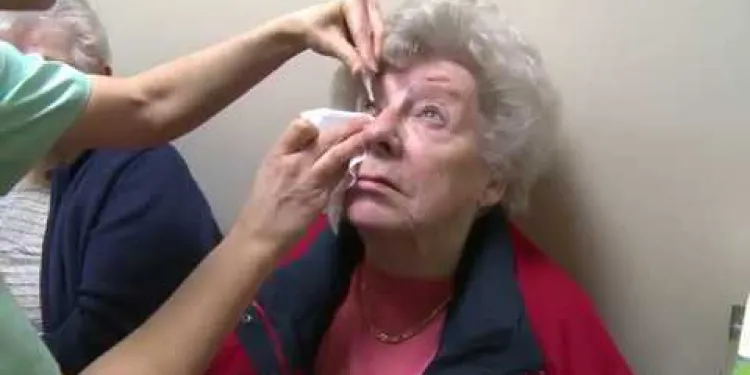
Eye Injections at Royal Bournemouth Hospital
Relevance: 46%
-
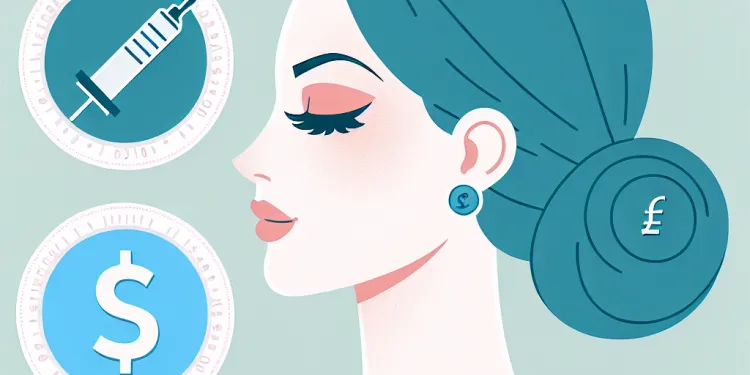
How much does Botox cost?
Relevance: 45%
-
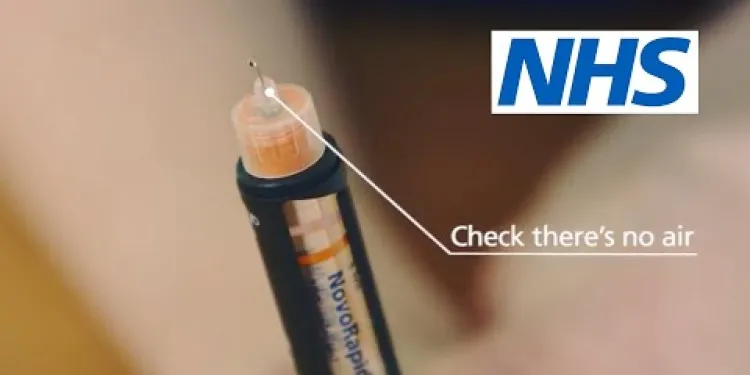
Diabetes: How to inject insulin | NHS
Relevance: 45%
-

Eye Injections at Royal Bournemouth Hospital
Relevance: 44%
-

How long has Botox been used in medicine?
Relevance: 43%
Understanding Botox Injections
Botox injections are a popular cosmetic procedure used to reduce the appearance of wrinkles and fine lines by temporarily paralyzing muscles. As with any medical procedure, potential patients often have concerns about the level of discomfort involved. Understanding the process and what to expect can help alleviate these concerns.
What Is Botox?
Botox is a drug derived from botulinum toxin, which is produced by the bacterium Clostridium botulinum. When used in small, controlled doses, it can safely relax muscles in the face, smoothing out wrinkles and providing a more youthful appearance. It is commonly used on areas such as the forehead, crow's feet, and between the eyebrows.
Does Botox Injection Hurt?
The perception of pain from Botox injections can vary from person to person, as pain tolerance is subjective. However, most patients describe the feeling as a slight pinch or prick. The needles used for Botox injections are very fine, which typically results in minimal discomfort. In some cases, patients may experience brief stinging, but this is generally short-lived.
To enhance comfort, some practitioners may use topical numbing agents or ice packs on the area before the injection. This can help reduce any discomfort experienced during the procedure. Overall, Botox injections are considered to be relatively painless compared to other cosmetic procedures.
Aftercare and Pain Management
Following a Botox injection, some patients may notice mild redness, swelling, or bruising at the injection site. These effects are usually temporary and resolve within a few hours to a couple of days. Applying a cold compress can help alleviate any initial soreness.
It's advised to avoid rubbing or massaging the treated area immediately after the injections to prevent the Botox from migrating to unintended areas. Additionally, patients should refrain from vigorous activities and extreme heat exposure (such as saunas) for at least 24 hours post-treatment to aid healing and reduce potential discomfort.
Consultation with a Qualified Professional
Before undergoing Botox treatment, it is crucial to consult with a qualified medical professional or dermatologist. They will assess a patient's specific needs and discuss any concerns, including pain management. A thorough consultation ensures that the individual has realistic expectations and is aware of both the benefits and any potential side effects.
Conclusion
Botox injections are generally considered a low-pain, quick procedure that offers cosmetic benefits with minimal downtime. The slight discomfort experienced is usually outweighed by the results, but it's essential to communicate openly with the practitioner about any pain concerns. Overall, with proper care and professional administration, Botox can provide satisfying results for individuals seeking to enhance their appearance.
Understanding Botox Injections
Botox injections help make wrinkles and fine lines less visible. They do this by making muscles relax for a short time. People often worry if it will hurt. Knowing how it works can help you feel less worried.
What Is Botox?
Botox comes from a toxin made by bacteria. When used in tiny, safe amounts, it can relax muscles in the face. This makes the skin look smoother and younger. Botox is usually used on the forehead, around the eyes, and between the eyebrows.
Does Botox Injection Hurt?
Different people feel pain differently, so it might hurt more for some than others. Most say it feels like a small pinch or poke. The needle used is very thin, so it doesn't hurt much. Sometimes, people feel a quick sting, but it goes away fast.
Doctors might use numbing cream or ice to help you feel more comfortable during the injection. This can make it hurt less. Compared to other beauty treatments, Botox injections usually don't hurt much.
Aftercare and Pain Management
After getting Botox, the skin might turn a little red, swell, or bruise where the needle went. These effects go away in a few hours or days. A cold cloth can help if it's sore.
Don't rub or touch the area right after the injection, so the Botox stays where it should. Avoid hard exercise and hot places like saunas for one day after treatment to help heal and reduce discomfort.
Consultation with a Qualified Professional
Before getting Botox, talk to a doctor or skin specialist. They will check what you need and talk about any worries, like pain. This talk helps you understand what to expect and know the good and any side effects.
Conclusion
Botox injections are quick and usually don't hurt much. They help make your skin look better with little time needed for recovery. Any pain is small compared to the results. It's important to talk to your doctor about any worries you have. With the right care, Botox can help improve your look.
Frequently Asked Questions
Does Botox injection hurt?
Most people report only minor discomfort during Botox injections, similar to a pinprick.
What does a Botox injection feel like?
It generally feels like a slight pinch or sting for a moment.
How long does the pain last after a Botox injection?
Any discomfort usually subsides quickly, typically within a few minutes.
Can the area be numbed before a Botox injection?
Yes, topical numbing creams or ice can be applied to minimize discomfort.
Will I feel pain after the Botox injection?
You might feel mild discomfort or tenderness at the injection site, but this is usually temporary.
Is there any recovery time after Botox injections due to pain?
There is minimal recovery time, and most people can continue their normal activities immediately.
What can I do to reduce discomfort from Botox injections?
Applying ice or using numbing creams can help reduce discomfort during the procedure.
Are some areas of the face more painful for Botox injections than others?
Sensitivity can vary, but generally, injections in areas with more nerve endings may be slightly more noticeable.
How many Botox injections are typically required per session?
The number of injections varies based on the treatment area and individual needs.
Does the pain from a Botox injection mean it's working?
No, the effectiveness of Botox is not related to pain; discomfort is more about the injection process.
Can a Botox injection cause lingering pain?
Lingering pain is uncommon; most people only experience temporary slight discomfort.
Should I avoid Botox if I am afraid of needles and pain?
Discuss your concerns with your provider; they can use techniques to minimize discomfort.
How does the pain of Botox injections compare to other cosmetic procedures?
Botox is generally considered less painful than many other cosmetic procedures.
Is numbing always necessary for Botox injections?
Numbing is not always necessary, but it can be used if you are concerned about pain.
Are there any side effects related to pain from Botox?
Side effects are usually mild and may include slight bruising or tenderness at the injection site.
How does Botox injection pain differ from filler injection pain?
Botox injections are often less painful than filler injections, which may require deeper placement.
Do repeat Botox injections hurt more or less over time?
Discomfort typically remains consistent, and some people find it less bothersome with repeat treatments.
Will the pain affect my ability to work after Botox injections?
Most people do not experience enough discomfort to impact their normal activities.
What is the best way to prepare for potential pain from Botox?
Discuss pain management options with your provider and consider using an ice pack or numbing cream.
Can I take pain relievers before Botox to reduce pain?
Consult your provider before taking any medication, as certain pain relievers may increase bruising risk.
Does it hurt to get a Botox shot?
Getting a Botox shot can feel a little like a pinch. Some people think it hurts a bit, but others say it doesn't hurt much at all.
If you are worried about it hurting, you can ask the doctor to use some cream to make your skin numb. This can help you feel less pain.
Remember, it is always okay to ask the doctor any questions you have before getting the shot. They are there to help you!
Most people say Botox injections only hurt a little bit, like a tiny pinch.
What is it like to get a Botox injection?
Getting a Botox injection might feel like a small pinch.
If you feel nervous, you can try:
- Taking deep breaths to relax.
- Bringing a friend or family member for support.
- Asking the doctor to explain what they are doing.
It might feel like a little pinch or sting for a second.
How long does the pain last after a Botox injection?
When you get a Botox injection, you might feel pain. The pain usually doesn't last long.
Most people feel better in a few hours.
Here are some tips to feel better:
- Take deep breaths to help relax.
- Put a cool cloth on the area to help with pain.
- If the pain is strong, you can ask a doctor for advice.
If you feel any pain or discomfort, it usually goes away fast. It might take just a few minutes.
Can the area feel nothing before a Botox needle?
Yes, you can put special cream or ice on your skin to help it not hurt so much.
Will it hurt after the Botox shot?
Some people might feel a little pain or sting after getting a Botox shot. You can use ice or a cool pack to help feel better. If you are worried, talk to your doctor or nurse.
You might feel a little sore or tender where you got the shot, but this usually goes away soon.
Does it hurt after getting Botox and do you need time to feel better?
Most people can go back to doing their normal things right away. You don’t need a lot of time to get better.
How can I feel better after Botox shots?
Putting on ice or a special cream can help make the procedure hurt less.
Do Botox injections hurt more in certain parts of the face?
Some parts of the face may hurt more than others when you get a Botox injection.
Here are some tips to help make it easier:
- Ask your doctor to explain what will happen.
- Take deep breaths to stay calm.
- Listen to music to relax.
- If you are nervous, tell your doctor.
Injections can feel different. Some places on your body have more nerves. This means you might feel the injection more in those places.
How Many Botox Injections Do You Need Each Time?
When you get Botox, you might need a few tiny shots. A doctor will help decide how many you need. Tools that can help include pictures or videos showing what happens. If you have questions, ask someone to explain or show you.
The number of shots you need depends on where you are getting the treatment and what you personally need.
Does it hurt when Botox works?
No, Botox does not work better if it hurts. If it hurts, it's because of the needle, not the Botox.
Can a Botox shot cause long-lasting pain?
Most people only feel a little pain for a short time. It is not common for the pain to last a long time.
Is it a good idea to stay away from Botox if I am scared of needles and getting hurt?
If you feel scared of needles and pain, here are some things that might help you:
- Breathe Deeply: Taking deep breaths can help you feel calm.
- Talk to the Doctor: Tell the doctor about your fears. They can help make you feel better.
- Use a Numbing Cream: The doctor can put cream on your skin. This cream can help so you don’t feel as much.
- Bring a Friend: Having someone with you can make you feel braver.
Think about these tips and talk to your doctor to decide what's best for you.
Talk to your doctor about what worries you. They can help make it less uncomfortable for you.
Does Botox hurt more or less than other beauty treatments?
Botox does not hurt as much as some other beauty treatments.
Do you always need numbing cream for Botox?
You don’t always need to make the area numb. But if you are worried about pain, it can help.
Does Botox cause any pain or side effects?
Botox might cause some pain or side effects. If you're worried, ask your doctor or nurse.
Here are some things that might help:
- Talk to someone if you feel scared or worried.
- Ask your doctor to explain things using pictures or simple words.
- Use a checklist to remember the things you want to ask your doctor.
After you get a shot, you might have some mild effects. Your skin could have a small bruise or feel a bit tender where you got the shot.
Does Botox hurt more than filler?
When you get a shot of Botox, you might feel a little pinch.
Filler shots can also pinch, but sometimes they may hurt a bit more.
You can use numbing cream or ice to help with the pain.
Getting Botox hurts less than getting fillers. Fillers need to go deeper into the skin.
Do Botox injections hurt more or less if you get them a lot?
Pain usually stays the same. Some people think it hurts less after getting treatment a few times.
Will it hurt to work after getting Botox?
Most people do not feel enough pain to stop them from doing their usual activities.
How can I get ready for pain from Botox?
Getting Botox might hurt a little. Here are some easy ways to feel better:
- Tell your doctor if you're scared of needles.
- Put ice on the spot before getting Botox. Ice helps numb the area.
- Take slow, deep breaths to relax.
If you need help, ask someone to be with you. They can hold your hand and help you feel safe.
Talk to your doctor about ways to help with pain. You can use an ice pack or special cream to make the area feel numb.
Can I take medicine to help with pain before Botox?
It is okay to wonder if medicine can help with pain. Ask your doctor if it’s safe to take any pain medicine.
Sometimes, a cold pack on the area can help. Take deep breaths to feel calm.
Always follow your doctor’s advice for the best care.
Talk to your doctor before you take any medicine. Some medicines for pain can make bruises worse.
Useful Links
Have you found an error, or do you have a link or some information you would like to share? Please let us know using the form below.
-->
This website offers general information and is not a substitute for professional advice.
Always seek guidance from qualified professionals.
If you have any medical concerns or need urgent help, contact a healthcare professional or emergency services immediately.
Some of this content was generated with AI assistance. We’ve done our best to keep it accurate, helpful, and human-friendly.
- Ergsy carfully checks the information in the videos we provide here.
- Videos shown by Youtube after a video has completed, have NOT been reviewed by ERGSY.
- To view, click the arrow in centre of video.
- Most of the videos you find here will have subtitles and/or closed captions available.
- You may need to turn these on, and choose your preferred language.
- Go to the video you'd like to watch.
- If closed captions (CC) are available, settings will be visible on the bottom right of the video player.
- To turn on Captions, click settings .
- To turn off Captions, click settings again.
More Items From Ergsy search
-

Does Botox injection hurt?
Relevance: 100%
-

What should I do if I experience side effects after a Botox injection?
Relevance: 78%
-

Does Botox hurt?
Relevance: 75%
-

Is Botox safe?
Relevance: 68%
-

Is Botox safe?
Relevance: 66%
-

Can Botox be used for migraines?
Relevance: 66%
-

What are the side effects of Botox?
Relevance: 65%
-

What is Botox used for?
Relevance: 65%
-

Can Botox help with excessive sweating?
Relevance: 64%
-

What is Botox?
Relevance: 62%
-

Can Botox cause serious health issues?
Relevance: 61%
-

What are the common uses of Botox?
Relevance: 61%
-

Can I get Botulism from Botox Treatments?
Relevance: 60%
-

Evidence-Based Interventions: injections for non-specific low back pain without sciatica
Relevance: 60%
-

What are the side effects of Botox?
Relevance: 58%
-

Can Botox be used for treating conditions other than wrinkles?
Relevance: 58%
-

How does Botox work?
Relevance: 58%
-

What areas can be treated with Botox?
Relevance: 57%
-

How does Botox work if it's related to botulism toxin?
Relevance: 57%
-

Who can administer Botox?
Relevance: 57%
-

Can Botox lift my eyebrows?
Relevance: 57%
-

What is Botox made from?
Relevance: 56%
-

Can anyone get Botox treatments?
Relevance: 56%
-

Is Botox vegan?
Relevance: 55%
-

Can I get Botox while pregnant?
Relevance: 54%
-

How long does Botox last?
Relevance: 52%
-

Are there any long-term effects of using Botox?
Relevance: 52%
-

How long do the effects of Botox last?
Relevance: 51%
-

How soon will I see results from Botox?
Relevance: 50%
-

How to inject insulin
Relevance: 49%
-

Is Botox treatment expensive?
Relevance: 49%
-

How often should I get Botox treatments?
Relevance: 49%
-

How should I choose a provider for Botox treatments?
Relevance: 48%
-

What precautions should I take before getting Botox?
Relevance: 47%
-

Are GLP-1 medications injectable?
Relevance: 47%
-

Eye Injections at Royal Bournemouth Hospital
Relevance: 46%
-

How much does Botox cost?
Relevance: 45%
-

Diabetes: How to inject insulin | NHS
Relevance: 45%
-

Eye Injections at Royal Bournemouth Hospital
Relevance: 44%
-

How long has Botox been used in medicine?
Relevance: 43%


